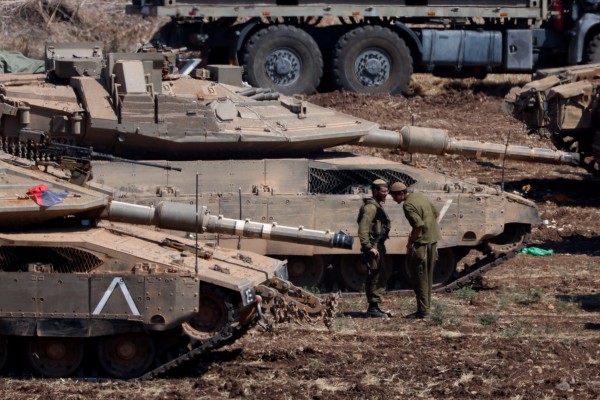Lebanese troops have pulled back from positions along Lebanon’s southern border with Israel to at least five kilometres north of the frontier, a Lebanese security source told Reuters on Monday.
Indications grew on Monday that Israel was on the verge of sending ground troops into Lebanon, two weeks into an assault on the Iranian-backed Hezbollah militia that culminated in the assassination of its leader, Sayyed Hassan Nasrallah.
Israeli media quoted Defence Minister Yoav Gallant as telling armoured corps troops near the Lebanese border that “Nasrallah’s elimination is an important step but it is not the end – to return the resident of the north safely to their homes we will activate all our capabilities – including you.”
The Israeli military also declared the areas around the communities of Metula, Misgav Am, and Kfar Giladi in northern Israel near the border with Lebanon as a closed military zone and said entry to the areas was prohibited.
It said the decision, announced as speculation has grown of an imminent ground incursion into southern Lebanon, was taken following a situational assessment.
In Washington, the State Department said Israel has told the United States it is conducting limited ground operations focused on Hezbollah infrastructure in Lebanon near the border with Israel.
“This is what they have informed us that they are currently conducting, which are limited operations targeting Hezbollah infrastructure near the border,” State Department spokesperson Matthew Miller told reporters on Monday.
A U.S. official who spoke on condition of anonymity told Reuters the positioning of Israeli troops suggested a ground incursion could be imminent.
After two weeks of intensive airstrikes and a string of assassinations of Hezbollah commanders, Israel has suggested ever more strongly that a land invasion is looming.
Miller said that the United States continues to support a ceasefire between Israel and Hezbollah but added that military pressure can at times enable diplomacy. He cautioned that military pressure can also lead to miscalculation and unintended consequences.
(REUTERS)
In a career spanning three decades and counting, Ramananda (Ram to his friends) has been the foreign editor of The Telegraph, Outlook Magazine and the New Indian Express. He helped set up rediff.com’s editorial operations in San Jose and New York, helmed sify.com, and was the founder editor of India.com.
His work has featured in national and international publications like the Al Jazeera Centre for Studies, Global Times and Ashahi Shimbun. But his one constant over all these years, he says, has been the attempt to understand rising India’s place in the world.
He can rustle up a mean salad, his oil-less pepper chicken is to die for, and all it takes is some beer and rhythm and blues to rock his soul.
Talk to him about foreign and strategic affairs, media, South Asia, China, and of course India.





